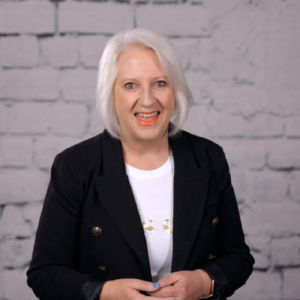Including the voice of whānau* in their work is an important focus at Equip, a community mental health provider for the wider Auckland region.
CEO Naomi Cowan (pictured) says it’s been an evolution over a number of years. However, thanks to a multipronged approach driven by senior leaders, and a concerted effort from kaimahi at various levels of the organisation, they are seeing good progress with whānau engagement.
“We knew we weren’t going to get the best outcomes for people unless we improved our engagement with whānau,” says Naomi.
About Equip
The medium-sized service covers a large area – from Rodney to Counties Manukau, with around 80 focused on supporting adults and older adults.
Established in 1991, Equip, then known as Te Ara Hou, was born of a practical expression of a Christian response to mental health need in the community, with the closure of many psychiatric hospitals and services.
Today, it offers a comprehensive range of services, including mobile community support for adults, social connection programmes for older adults, dementia day care, respite facilities, employment services, accommodation support, dietitian services, and faith-based support.
The origins of whānau engagement at Equip
Whānau engagement at Equip took root with the arrival of Johnny Pullman, a programme manager with a background in social work, says Naomi. His introduction of Ian Falloon’s Integrated Mental Health Care Programme marked a pivotal mindset shift towards a more inclusive, family-centred approach.
“He was ahead of his time,” recalls Naomi. “It was a research-based programme that emphasised family and informal supports.”
“Initially, this involved regular meetings and consultations with family members, but over time, we moved to a strengths-based model as families sought less intensive engagement.”
This evolution in practice underscored the importance of whānau in the care process. “Family and whānau are the best observers but often poor interpreters,” says Naomi. “Supporting and upskilling whānau members has become essential.”
So, whānau engagement has long been part of Equip’s philosophy, although the way they have done it has changed over time.
“It’s in our DNA,” says Naomi.
Development of whānau engagement
In 2016, Equip redoubled its efforts to improve whānau engagement.
“We decided to focus on an organisation-wide goal to boost our whānau engagement statistics, which were [then] around 30 to 35 percent.”
Through a multipronged approach, Equip significantly increased engagement rates to 58 percent by 2018.
Working with the KPI Programme helped them track and benchmark how their services were performing, with an eye on continuous improvement.
“One thing I learned is you manage what you measure. We now have much better and accessible data,” says Naomi.
Strategies for enhancing whānau engagement
Equip implemented several strategies to foster better whānau engagement.
When tāngata whai ora access Equip services, support workers strive to obtain consent to engage with whānau and provide information about the family and whānau services they provide.
Understandably some people say no to whānau engagement but Equip try to understand the reasons why.
“We upskill staff to understand and revisit the reasons behind a refusal, recognising that circumstances can change,” says Naomi.
In addition, Equip offers coaching for kaimahi, and provides prompt sheets for initial family and whānau contact and guidance on conducting meetings.
They support kaimahi with upskilling around data and information use, measure engagement and benchmark internally so teams learn from and support each other.
Equip have a Family and Whānau Council, which plays a crucial role in the organisation, providing feedback and input from family and whānau members of tāngata whai ora using their services. The council meets monthly, sits on interview panels, reviews family and whānau feedback, and participates in co-design initiatives.
“Their voice is very strong,” says Naomi. “They help us understand what works and what doesn’t, ensuring we don’t shut whānau out.”
Moving forward
Equip is set to re-launch whānau engagement as a priority at every level of the organisation. Like many other organisations, the focus on whānau engagement dropped off during the pandemic.
This initiative will include supervision sessions focused on whānau engagement, coaching, and visual reminders. Recognition and celebrating progress, such as team lunches are planned to keep kaimahi motivated.
“It has to come from the top,” says Cowan, underscoring the leadership’s role in driving transformative changes.
Equip’s dedication to enhancing whānau engagement shows their ongoing commitment to providing holistic support for tāngata whai ora and their loved ones. They are a great example of how one of our mental health NGOs are using data to inspire continuous service improvement.
*In the context of Aotearoa New Zealand, “family/whānau is not limited to blood ties, but may include partners, friends, and others in a person’s wider support network” (Ministry of Health. (2017). Office of the Director of Mental Health Annual Report 2016).


 Login / Register
Login / Register Search
Search Menu
Menu

